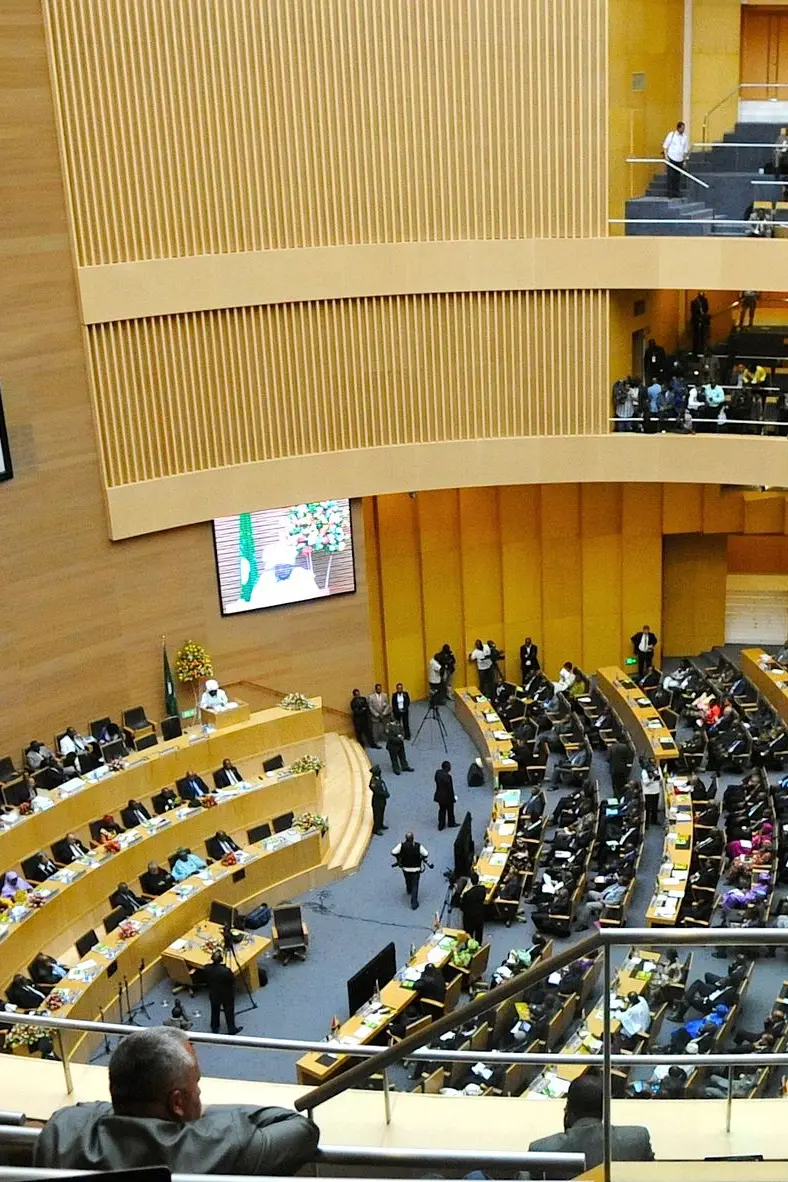

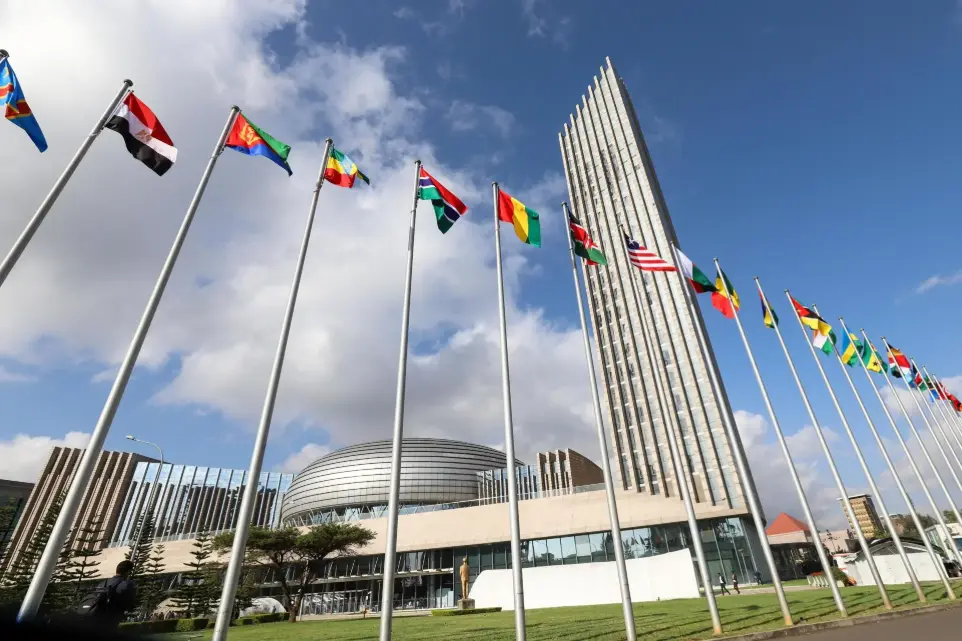
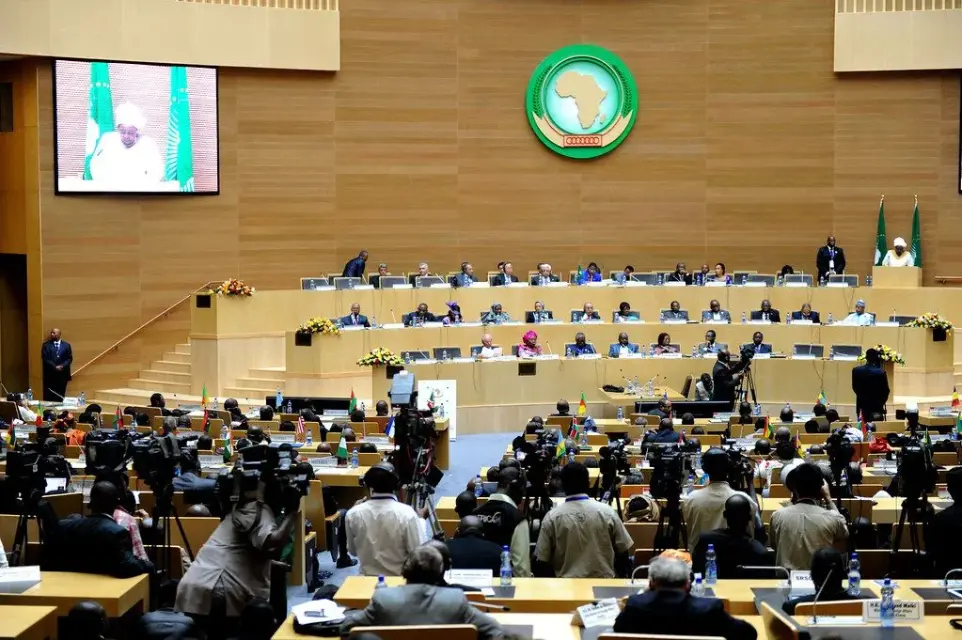
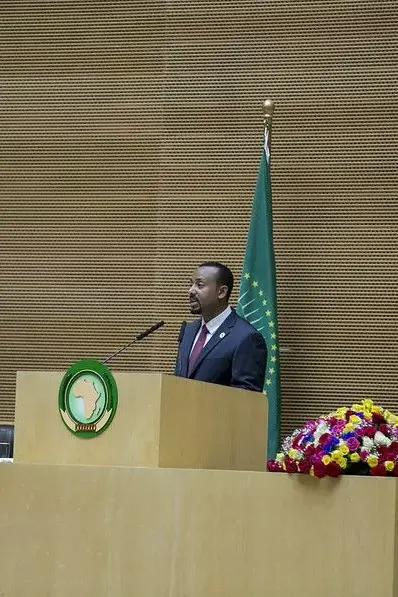

How does the African Union address human rights challenges on the continent?
In this space dedicated to the exploration and in-depth analysis of global human rights, we delve into the fascinating world of the African Union and its human rights challenges. Discover how this organization addresses challenges on the African continent in our feature article "Human Rights Challenges of the African Union." Join us on this journey of discovery and impact in the defense of fundamental rights.
Introduction
The African Union is a continental organization composed of 55 member states, with the aim of promoting integration and cooperation among African countries. It was founded in 2001, replacing the Organization of African Unity, and has since worked in areas such as peace, security, and economic and social development on the continent.
The African Union is headquartered in Addis Ababa, Ethiopia, and its structure is based on several bodies, including the Peace and Security Council, the African Union Commission, and the Pan-African Parliament. These bodies play a crucial role in promoting human rights in Africa, addressing challenges, and working to implement measures to protect them.
The African Union has adopted several legal instruments and treaties to address human rights issues, such as the African Charter on Human and Peoples' Rights and the Protocol to the African Charter on Human and Peoples' Rights on the Rights of Women in Africa. These instruments establish standards and obligations for member states regarding human rights.
Human rights are fundamental to sustainable development, peace, and stability on the African continent. Africa has experienced significant challenges in terms of armed conflict, poverty, inequality, and human rights violations. Therefore, the protection and promotion of human rights are essential to addressing these problems and ensuring a prosperous future for all Africans.
Human rights play a crucial role in promoting social justice, gender equality, protecting vulnerable groups, such as children and minorities, and ensuring freedom of expression and association. Furthermore, human rights are closely linked to good governance and accountability, which are fundamental to sustainable development on the continent.
The African Union recognizes the importance of human rights and has established mechanisms to monitor their situation in member states, as well as to address the challenges the continent faces in this area.
Human Rights Challenges in the African Union
The African Union faces significant challenges in analyzing armed conflicts and violence on the continent. With multiple conflicts present in different regions, the AU strives to address the underlying causes of these conflicts and promote their peaceful resolution. The task of monitoring, analyzing, and responding to armed conflicts in Africa is crucial to protecting the human rights of affected citizens.
The African Union has deployed peacekeeping missions and forces in several conflict-affected countries, with the aim of mitigating violence and protecting civilians. Through these actions, the AU seeks to reduce the devastating impact of armed conflict on the civilian population and ensure respect for human rights even in times of conflict.
It is critical that the African Union continue to enhance its capabilities to analyze armed conflict and violence, as well as strengthen its strategies to address these situations effectively and in line with international human rights standards.
Access to justice and strengthening the rule of law represent significant challenges for the African Union in its work to promote and protect human rights on the continent. Lack of access to effective judicial systems, corruption, and impunity are obstacles the AU faces in its mission to ensure that all individuals have the opportunity to seek and obtain justice equitably.
The African Union works in partnership with Member States to strengthen judicial institutions, promote the independence of the judiciary, and improve access to legal services for communities. Furthermore, the AU strives to address corruption and lack of transparency that can hinder the rule of law in several African countries.
It is crucial that the African Union continue to promote legal and judicial reforms that guarantee equal access to justice for all individuals on the continent, and that it work to strengthen the rule of law as a fundamental pillar for the protection of human rights in Africa.
The protection of vulnerable groups and minorities represents a major challenge for the African Union in its work to promote and protect human rights on the continent. Discrimination, social exclusion, and violence against minority and vulnerable groups are persistent problems that the AU strives to address effectively.
The African Union works in partnership with Member States and civil society organizations to develop and implement policies and programs that protect the rights of vulnerable groups, including refugees, internally displaced persons, ethnic minorities, and marginalized communities. Promoting equality, diversity, and inclusion is central to the AU's approach to protecting those facing vulnerable situations.
It is essential that the African Union continue to strengthen its efforts to protect the rights of vulnerable groups and minorities on the continent and work closely with Member States to ensure that these communities receive the protection and support necessary to fully enjoy their human rights.
Economic development and human rights are intrinsically linked, as strong economic development can significantly improve the protection and promotion of human rights in a region. In the context of the African Union, sustainable economic development is critical to addressing human rights challenges on the continent. Access to economic opportunities, decent employment, quality education, and adequate health services are essential components to ensuring the full enjoyment of human rights for all people in Africa.
The African Union recognizes the importance of economic development for the protection of human rights and has implemented initiatives and programs to promote inclusive economic growth in the region. These initiatives seek to address economic inequalities, foster economic diversification, improve infrastructure, and strengthen health and education systems, all of which contribute to the realization of human rights on the African continent.
Furthermore, it is essential that economic development occur in a sustainable and equitable manner, avoiding the exploitation of natural resources and ensuring that the benefits of economic growth are distributed fairly among the entire population. The African Union, in collaboration with its Member States and international partners, works to ensure that economic development in Africa is aligned with human rights principles, promoting equality, social justice, and respect for human dignity.
African Union Actions
The African Union addresses human rights challenges on the continent through the implementation of specific policies and treaties. It establishes mechanisms to ensure that member states comply with international human rights standards, such as the African Charter on Human and Peoples' Rights. It also promotes the ratification and implementation of relevant international treaties, such as the Convention on the Elimination of All Forms of Racial Discrimination and the Convention on the Elimination of All Forms of Discrimination against Women.
The African Union also monitors compliance with these policies and treaties, including conducting periodic reports and reviews to assess progress and address gaps in human rights protection in the region.
Furthermore, it establishes accountability mechanisms to ensure that member states are held accountable for their actions related to human rights, which contributes to strengthening the rule of law on the African continent.
The African Union develops education and awareness-raising programs to promote respect for and protection of human rights throughout the region. These programs are designed to reach a wide range of audiences, including government officials, community leaders, educators, and civil society at large.
The education programs focus on increasing understanding of human rights, promoting tolerance and inclusion, and fostering respect for diversity on the African continent. The African Union also works closely with national education systems to integrate human rights education into schools and universities, with the aim of instilling values of respect and dignity from an early age.
Additionally, awareness-raising programs seek to raise public awareness of specific human rights issues, such as gender equality, child protection, and anti-discrimination, through information campaigns, training, and community-based activities.
The African Union works closely with international organizations, such as the United Nations (UN) and the European Union, to address human rights challenges on the African continent. This collaboration translates into the implementation of joint programs, the exchange of information and best practices, and mutual support in initiatives to promote and protect human rights.
Furthermore, the African Union actively participates in international human rights forums, where it advocates for Africa's interests and promotes inclusive and equitable approaches to addressing human rights issues globally.
This cooperation with international organizations strengthens the African Union's capacity to address human rights challenges while demonstrating its commitment to multilateral collaboration in promoting fundamental rights on the continent.
The African Union addresses human rights challenges on the continent through a comprehensive approach that includes monitoring and accountability. To this end, the African Commission on Human and Peoples' Rights (ACHPR) plays a crucial role in monitoring the human rights situation in member states. This commission conducts country visits, collects information, issues reports, and makes recommendations to address human rights violations in the region.
Furthermore, the African Union promotes accountability by implementing mechanisms to investigate and prosecute those responsible for human rights violations. The African Court on Human and Peoples' Rights, established in 2004, has the authority to adjudicate cases of human rights violations and ensure that perpetrators are held accountable.
Constant monitoring and effective accountability are fundamental elements in addressing human rights challenges in Africa. These efforts seek to ensure that the fundamental rights of all people on the continent are respected and protected, thus contributing to the promotion of justice and human dignity in the region.
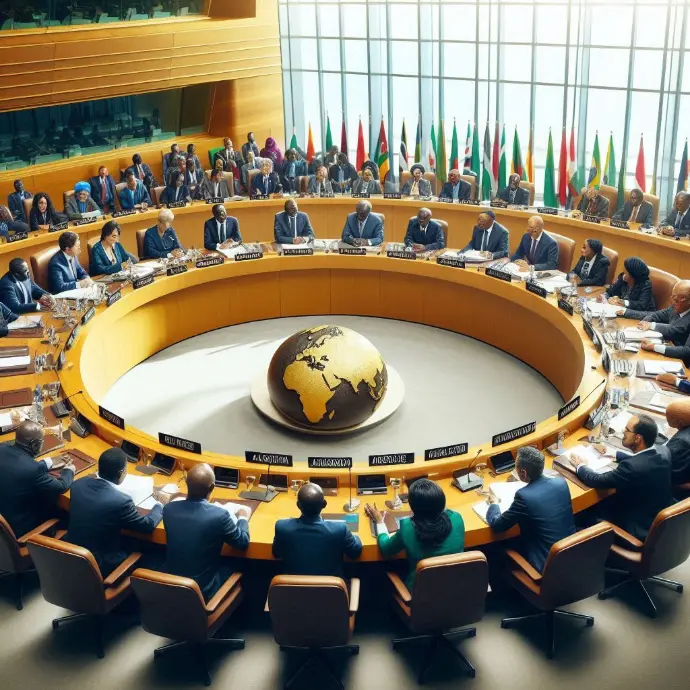
Impact of African Union Initiatives
The African Union has made significant progress in the protection of human rights on the continent. Through the adoption of legal instruments such as the African Charter on Human and Peoples' Rights, the African Union has laid the foundation for ensuring the protection and promotion of human rights in all 55 Member States.
Furthermore, the African Union has established the African Commission on Human and Peoples' Rights, which plays a crucial role in monitoring the implementation of the African Charter and investigating allegations of human rights violations on the continent. This proactive approach has contributed to creating a robust framework for addressing human rights violations and promoting accountability in Africa.
The African Union has also sought to strengthen regional cooperation on human rights, fostering the exchange of good practices and collaboration among Member States to address common challenges, such as human trafficking, discrimination, and gender-based violence.
Despite the progress made, the African Union faces persistent challenges in the protection of human rights on the continent. A lack of financial and technical resources remains a significant obstacle to the full implementation of human rights instruments and to the ability of the African Commission on Human and Peoples' Rights to conduct thorough investigations into human rights violations.
Furthermore, corruption, political instability, and armed conflict in some African countries continue to hinder efforts to ensure full respect for human rights throughout the region. These challenges require a continued and coordinated approach by the African Union and its Member States to address the underlying causes of human rights violations and promote peace and stability on the continent.
To enhance the protection of human rights in Africa, the African Union must continue to strengthen its institutional capacity, ensure sustainable funding for its human rights initiatives, and promote regional cooperation to effectively address common challenges.
While the African Union has made significant progress in protecting human rights, challenges remain compared to international standards. The lack of ratification and effective implementation of certain international human rights treaties, as well as the need to harmonize national laws with international standards, are aspects that require continued attention by the African Union and its Member States.
Cooperation with international human rights mechanisms, such as the United Nations and other regional bodies, is critical to ensuring that the African Union is aligned with international human rights standards and practices and to strengthening its capacity to effectively address emerging challenges.
Conclusions
The African Union has made significant efforts to promote and protect human rights on the continent. Through the African Charter on Human and Peoples' Rights, the AU has established a comprehensive legal framework addressing a wide range of rights, including civil, political, economic, social, and cultural rights. Furthermore, the AU established the African Commission on Human and Peoples' Rights, which plays a crucial role in monitoring the implementation of the Charter and investigating human rights violations in the region.
The African Union has also established mechanisms to address humanitarian crises and conflicts on the continent, recognizing that peace and security are fundamental to ensuring respect for human rights. Through its Human Rights Programme, the AU has worked in partnership with member states to strengthen national human rights capacities and has developed guidelines and policies to address key issues, such as the protection of human rights defenders and the empowerment of women and girls.
While significant progress has been made, the African Union faces persistent challenges in the effective implementation of its human rights initiatives. Lack of resources, corruption, political instability, and armed conflict remain major obstacles to the full realization of human rights on the continent.
To address ongoing challenges, the African Union must intensify its efforts to strengthen the rule of law, promote good governance, and combat corruption at all levels. It is crucial to increase regional cooperation and coordination among member states to address the underlying causes of conflicts and humanitarian crises and to ensure accountability for human rights violations.
Furthermore, the AU should focus on strengthening human rights protection mechanisms, including the training of law enforcement officials and the judiciary. Particular attention should be paid to the protection of vulnerable groups, such as refugees, internally displaced persons, ethnic minorities, and indigenous communities.
It is critical that the African Union ensure meaningful civil society participation in human rights policymaking and decision-making, and that it protect civic space and freedom of expression throughout the region. By doing so, the AU can move toward creating an environment in which human rights are respected, protected, and enjoyed by all on the African continent.

 IHRO NEWS
IHRO NEWS